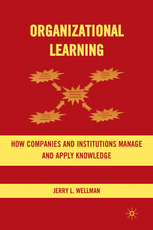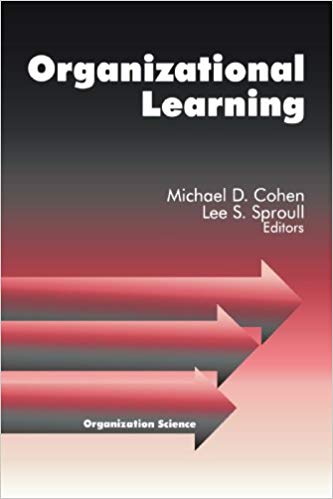Below you can find my recommended knowledge retention books. As in all other sections, I have personally read and reviewed the books presented below.
Organizational Learning
by Wellman J.L. (2009)

Buy from:
My Review (4/5)





This is an atypical book on organizational learning. While many texts in this genre can be very heavy on theory, this text takes a more practical focus, while offering a concise and sound theoretical foundation necessary to get the message across.
In this book, Wellman focuses on four ways that an organization can manage knowledge: culture, old pros, archives, and processes (i.e. the way things work in that particular organization). The focus of the books is correspondingly simple but useful, with Wellman limiting the scope to the management of lessons learned.
Organizational Learning
edited by Cohen and Sproul (1995)

Buy from:
My Review (4/5)





This is a large collection of readings, which includes some of the most quintessential texts in this field by some of the most respected authors. It is very hard to review this book as a whole, because of the sheer number of articles. However, I can highlight a few of the important texts.
Organizational Learning & Communities of Practice by Brown and Duguid: This article focuses on the difference between the way work is done in an organisation and the formal description of this process (one which management seems to rely). The authors link work practice with learning and innovation from a community perspective.
 Emil Hajric
Emil Hajric